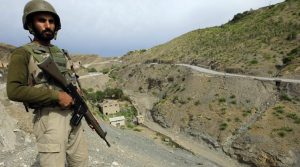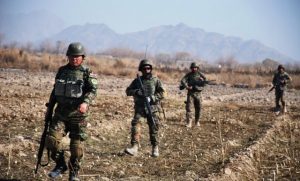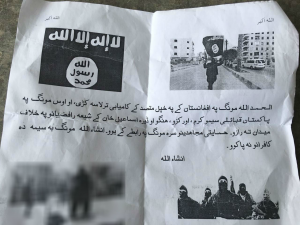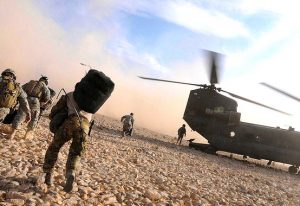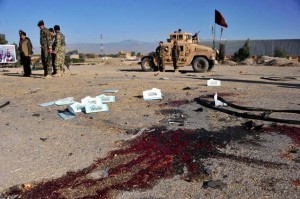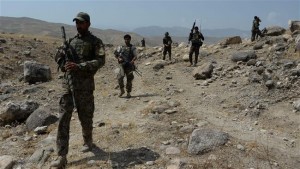An escalating border conflict between Afghanistan and Pakistan is threatening to undermine their cooperation on terrorism and peace talks with the Taliban as the Trump administration begins weighing its options to spur progress on both fronts, like reported by stripes.com.
After a blitz of terrorist bombings across Pakistan left more than 125 people dead, Pakistani forces began shelling both sides of the border Friday, aiming at camps used by a group tied to the Islamic State that claimed most of the attacks. Pakistan also closed all border crossings.
Afghanistan has protested that the shelling is forcing hundreds of villagers to flee their homes. U.S. officials have asked Pakistani military leaders to cooperate with their neighboring country in going after the militants, but Pakistan has threatened to take further unilateral action.
And in a tit-for-tat exchange of demands, Pakistan asked Afghan officials Saturday to hand over 76 alleged militants based in Afghanistan, while Afghan diplomats Sunday called for action on a list of 32 terrorist training centers and 85 militant leaders they say are in Pakistan, including the Haqqani Taliban faction that is fighting against the Afghan state.
“Turmoil in Afghanistan has created space for terrorist organizations to find their foothold there,” said Nafees Zakaria, a spokesman for Pakistan’s Foreign Affairs Ministry. He said the group responsible for the recent bombings was based in Afghanistan as far back as 2014, when it massacred 141 people at a Pakistani army school, an assault that outraged the country.
Zakaria added that other countries in the region are concerned about the “growing footprint of groups like ISIS in Afghanistan.” The Islamic State is also known as ISIS.
Russia in particular has been seeking a role in solving the Afghan conflict, hosting regional meetings on it and expressing support for the Taliban as an antidote to a spillover of Islamic State groups into Central Asia. That approach has alarmed U.S. military officials who urged the Trump administration to raise troop levels in Afghanistan to block further Taliban advances.
There is plenty of irony in Pakistan’s finger-pointing. Afghanistan has long complained that Pakistan provides sanctuary for Taliban leaders and factions, a charge it denies. And the group most linked to last week’s bombings, Jamaat-ul-Ahrar, is an outgrowth of the Pakistani Taliban, which was driven into Afghanistan by a massive Pakistan army operation in 2015.
Once the group had relocated, some members split off and pledged allegiance to the Islamic State, a radical Sunni militia. Those militants have overrun several Afghan border districts, despite repeated efforts by Afghan forces to push them out, and they have claimed the bombing of several Shiite mosques in Kabul, the Afghan capital.
“Afghanistan is the victim of terrorism, not its shelter,” Gen. Dawlat Waziri, a spokesman for the Afghan Defense Ministry, declared Sunday. He called Pakistan’s border attacks “an act of aggression” and warned that if diplomatic efforts fail, “Afghans will defend their soil with whatever means available.” A Foreign Affairs Ministry official said Afghanistan might even seek U.N. sanctions against Pakistan for supporting terrorist groups.
Michael Kugelman, deputy director for Asian studies at the Woodrow Wilson International Center for Scholars in Washington, described Jamaat-ul-Ahrar as one of the Pakistani Taliban’s “most bloodthirsty factions,” with a “small but brutal contingent” in Afghanistan.
In Pakistan, Kugelman added, the Islamic State has been forming “opportunistic partnerships” with radical religious groups of all kinds, including some that officials had for political reasons been reluctant to curb. The danger, he said, is of growing collaboration between the Islamic State and “high-octane local militant factions eager to latch onto its still-powerful brand.”
Given the common threat this phenomenon has created for Pakistan and Afghanistan, analysts pointed out, it would seem a perfect moment for their governments to join forces , especially when they are eager to prove to the new administration in Washington that they are serious about fighting Islamist insurgents and terrorists.



